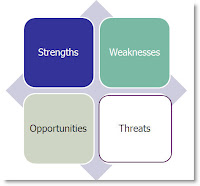This afternoon I spent almost 3 hours trying to fix a problem in my camera. Suddenly my dad remembered the tech-genius in his office and called him up. I explained him my problem, he gave me instructions over the phone and tadaa - problem solved! The problem I couldn't solve in 3 hours (sometimes I tried doing the same thing over and over again) was solved in less than 3 minutes by an expert without even looking at the device. If I had consulted him in the first place, then I'd not just have saved 3 hours of my day but also would have saved the additional stress and frustration.
We cannot do everything on our own. Even if we try to then we can't be an expert at everything. Some people are good with technology, some are good with words, some are good with numbers and some are good in business. Therefore, each would benefit the most if they take help of an expert instead of trying to solve every problem on their own.
What this means to you as an individual then? Spend some time building networks and knowing people. Identify the experts and have them on your contact list. But, remember - knowing them is not enough. Relationship building is crucial here. Why should someone help you if they don't know you well? Also remember to help these experts out in areas you're good at. What if you're an organization then? Invest in hiring experts. You need not have them in your regular payroll but associate them with your organization as a consultant. You never know when you'll need them and when they can come in handy. Moreover, they think of solutions that never occurred to your mind.
Experts - they save your time and free you up to focus on those areas you're really good at. In economic terms, it is called gaining a 'comparative advantage'. Yes, using experts might be a little costly. But, a job well done and the time saved is worth every penny you pay.











